In today’s fast-paced world, it’s easy to feel isolated. Even in bustling cities and densely populated neighborhoods, many people find themselves lacking genuine social connections. Yet, research continues to show that our mental health is closely tied to the communities we are part of. Whether it’s family, friends, support groups, or local organizations, having a network of people you can rely on is one of the most powerful protective factors for emotional well-being.
Community isn’t just a “nice-to-have”, it’s a core component of mental health. From reducing feelings of loneliness to helping people recover from mental illness, community-based relationships play a critical role in our overall wellness. For individuals in recovery or those navigating challenges like depression, anxiety, or trauma, community can be the lifeline that keeps them moving forward.
What Is the Importance of Community and Mental Health Being Connected?
Community and mental health are deeply intertwined because human beings are inherently social creatures. From birth, we rely on others for survival, learning, and emotional stability. Our relationships and sense of belonging shape how we see ourselves and how we navigate life’s challenges.
A strong community connection provides:
- Emotional support: People who listen, understand, and validate your feelings can help you process emotions in a healthy way.
- Practical help: Communities can provide resources such as transportation, meal support, financial assistance, and more.
- A sense of belonging: Feeling accepted and valued helps reduce stress and boosts self-esteem.
- Opportunities for growth: Interacting with diverse people allows you to learn new skills, perspectives, and coping mechanisms.
The World Health Organization emphasizes that community-based mental health care is essential because it integrates individuals into society rather than isolating them in institutional settings. This connection to others not only improves quality of life but also reduces the stigma surrounding mental illness, much like the approach we take in our community support programs in Portland.
How Social Connections Impact Mental Well-Being
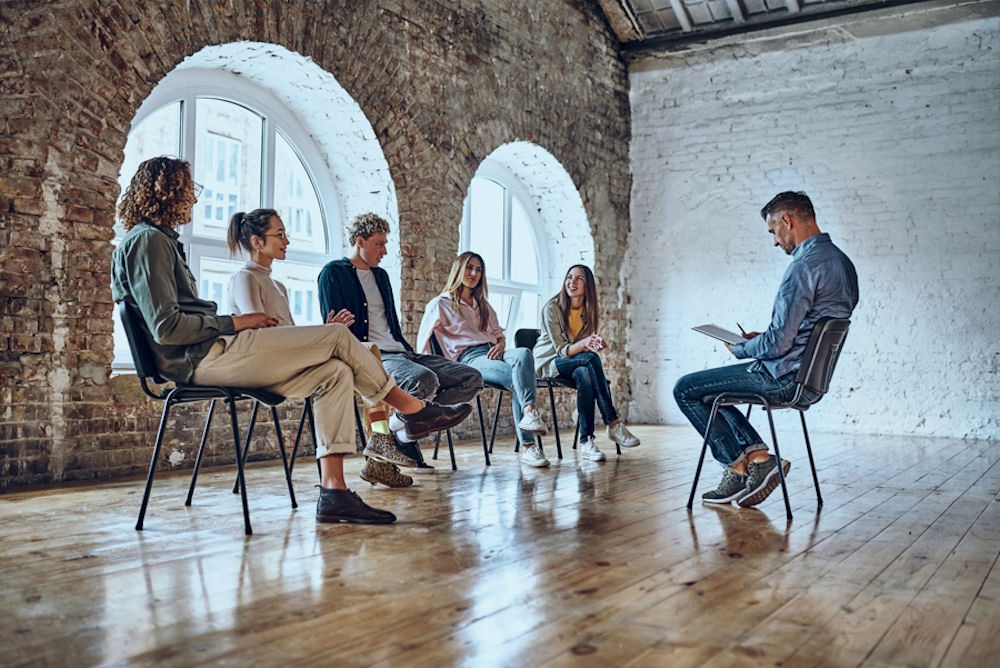
Social connection has a measurable impact on mental health. In fact, studies have shown that strong relationships can lower rates of depression and anxiety, improve self-worth, and even increase life expectancy. On the other hand, chronic loneliness has been linked to higher risks of mental health disorders, substance abuse, and physical illness.
Benefits of Strong Social Ties:
- Reduced stress: Friends and family can help buffer the effects of stressful events.
- Better coping skills: A supportive network encourages healthier responses to challenges.
- Lower relapse rates: In addiction recovery, people with strong community support are less likely to return to substance use.
- Increased motivation: Social accountability often helps individuals stay on track with treatment goals.
For example, a person battling depression who has friends regularly checking in is more likely to stay engaged with therapy and self-care routines. Similarly, someone in recovery who attends support group meetings often feels less tempted to isolate or fall back into old habits. Our mental health treatment in Portland emphasizes the power of these supportive connections. Social connection also impacts physical health – lowering blood pressure, improving immune function, and even reducing inflammation.
Strategies to Foster Connections and Support Systems
Building a supportive network takes intentional effort, but the rewards are worth it. Here are strategies to strengthen community bonds:
- Join Local Groups or Clubs: Whether it’s a book club, art class, or sports team, shared interests are a natural way to form connections.
- Volunteer Your Time: Giving back not only helps others but also fosters a sense of purpose and belonging, as in an alumni volunteer program.
- Attend Support Groups: Groups for mental health, grief, or addiction recovery offer a safe space to share and listen without judgment.
- Stay in Touch with Loved Ones: Consistent communication — even small check-ins — can keep relationships strong.
- Participate in Community Events: Farmers’ markets, local fairs, and neighborhood gatherings are great opportunities to meet people.
- Use Technology to Connect: Online forums and social media can be helpful for those who can’t attend in-person events, especially for niche communities.
- Engage in Wellness Activities: Group fitness classes, meditation circles, and creative workshops can combine self-care with socialization.
The key is consistency. Building trust and meaningful connections requires regular interaction, not just occasional engagement.
For those in recovery, our group therapy program and alumni community events create structured, supportive environments.
How Interacting with the Community Can Improve Resilience and Reduce Symptoms of Mental Illness
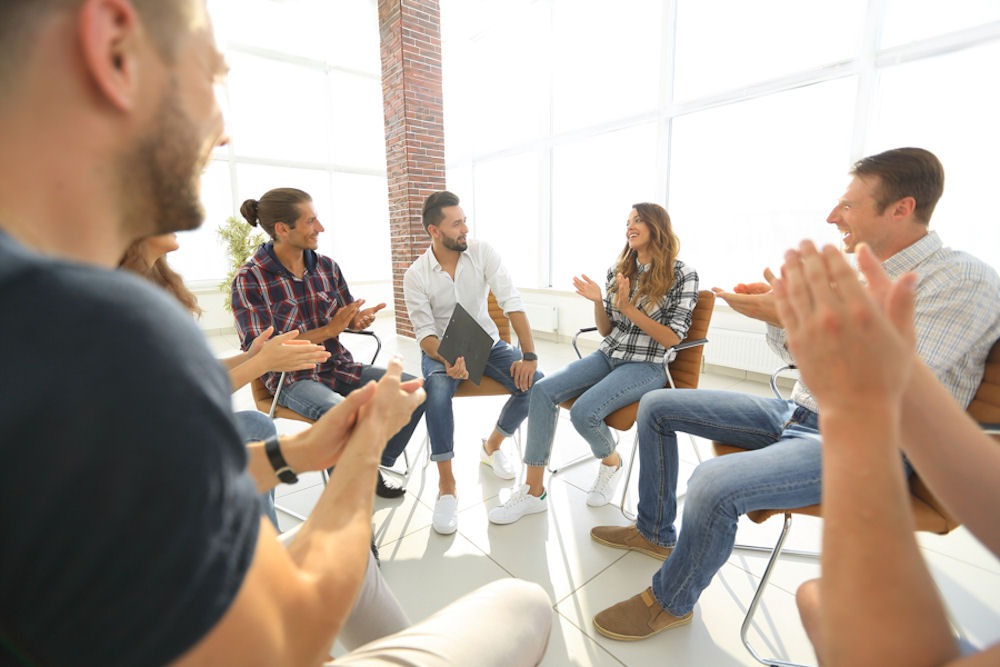 Resilience, the ability to recover from setbacks, is a skill that grows stronger through community involvement. When people feel supported, they’re more likely to bounce back after difficult times.
Resilience, the ability to recover from setbacks, is a skill that grows stronger through community involvement. When people feel supported, they’re more likely to bounce back after difficult times.
Community interaction can:
- Reduce feelings of isolation, which are strongly linked to depression.
- Provide perspective, helping individuals realize they are not alone in their struggles.
- Encourage early intervention, as friends or neighbors may notice warning signs before a crisis develops.
- Promote healthy habits, such as exercise, better nutrition, and medication adherence, through shared activities and reminders.
Community connections also encourage skill-sharing. For example, one member might teach stress-reduction breathing exercises, while another introduces the group to healthy cooking tips. These exchanges build confidence and promote healthier routines.
For individuals living with conditions like bipolar disorder, post-traumatic stress disorder, or anxiety disorder, having a community can mean faster stabilization during tough times. People who know and care about you can encourage you to seek help, remind you of coping skills, or simply be present during moments of distress.
Our dual diagnosis treatment is built around the principle that integrated support helps people stabilize more quickly and sustain their progress.
Build Your Mental Health Support System
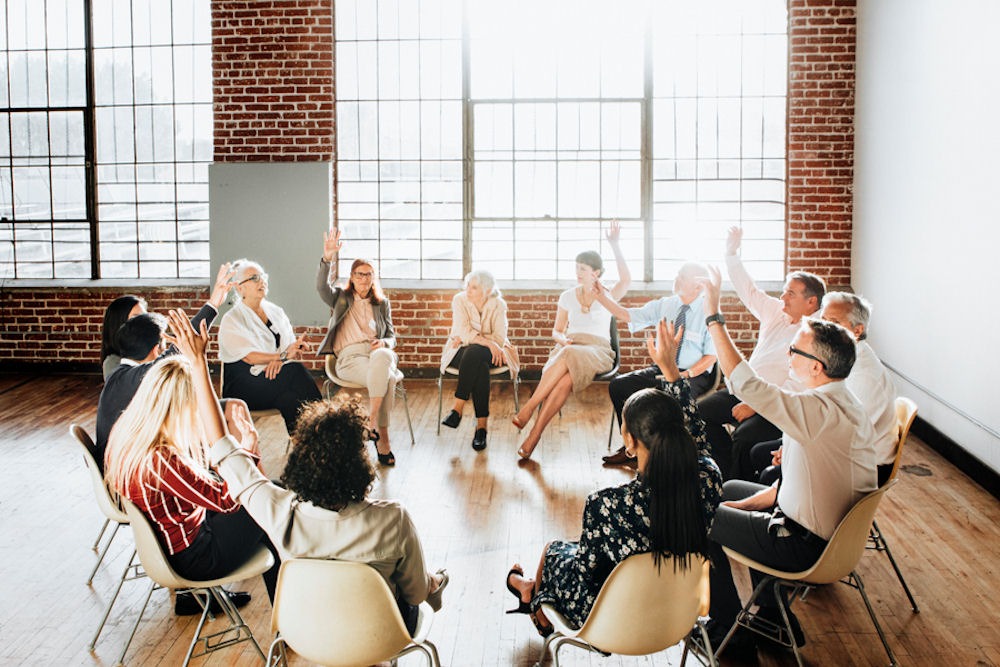
If you’re starting from scratch or rebuilding your support system, consider these steps:
- Identify Your Needs: Think about what kind of support would be most helpful – emotional, practical, or informational.
- Seek Out Like-Minded Individuals: Whether through therapy groups, hobbies, or online communities, look for people who share your values and interests.
- Be Willing to Give as Well as Receive: Mutual support builds stronger bonds than one-sided relationships.
- Work with Professionals: Therapists, counselors, and case managers can help connect you with resources.
- Set Boundaries: Healthy connections involve respecting each other’s limits, which helps prevent burnout and resentment.
- Create a Routine of Connection: Schedule regular meetups, calls, or messages to maintain your support system.
Your support system might include family, friends, neighbors, spiritual leaders, mental health professionals, and peer mentors. Even casual acquaintances can play an important role, offering kindness, encouragement, or practical help when needed.
If you’re looking for guidance, check out our individual therapy program for one-on-one support.
FAQ: Community and Mental Health
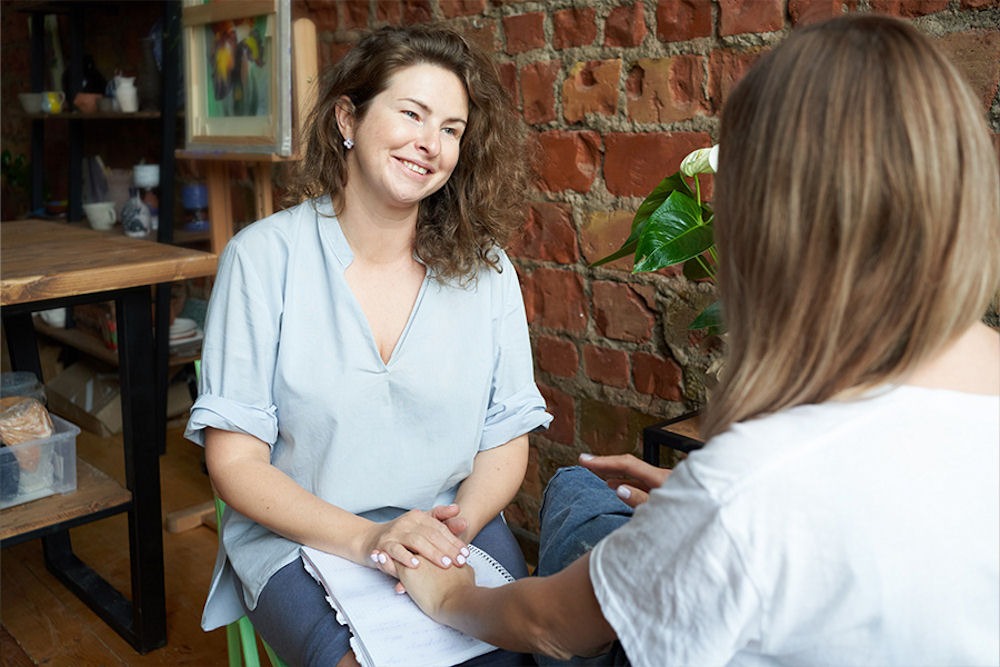
A: Yes. Research consistently shows that people with strong social connections experience lower rates of depression, anxiety, and stress, along with improved life satisfaction.
A: Start small. Online communities, one-on-one meetups, or low-pressure group activities can help you ease into social engagement.
A: A supportive community provides accountability, shared experiences, and encouragement, all of which reduce the risk of relapse.
A: Absolutely. Many people create “chosen families” through friendships, local organizations, and peer support groups.
A: Start by contacting local clinics, nonprofit organizations, and helplines. Many communities also have directories for mental health providers and peer support networks.
Crestview Recovery: A Supportive Community in Portland, Oregon
At Crestview Recovery, we understand the critical link between community and mental health. Our programs are designed to provide both professional treatment and peer support, giving clients the tools and relationships they need to thrive. Through group therapy, recreational activities, and alumni connections, we help individuals build a network that extends well beyond treatment.
Our Portland-based team creates a safe, welcoming environment where clients feel seen, heard, and supported. By blending evidence-based therapies with a community-focused approach, we empower individuals to heal, grow, and reconnect with the world around them. Learn more about our Portland treatment center.
Call to Action
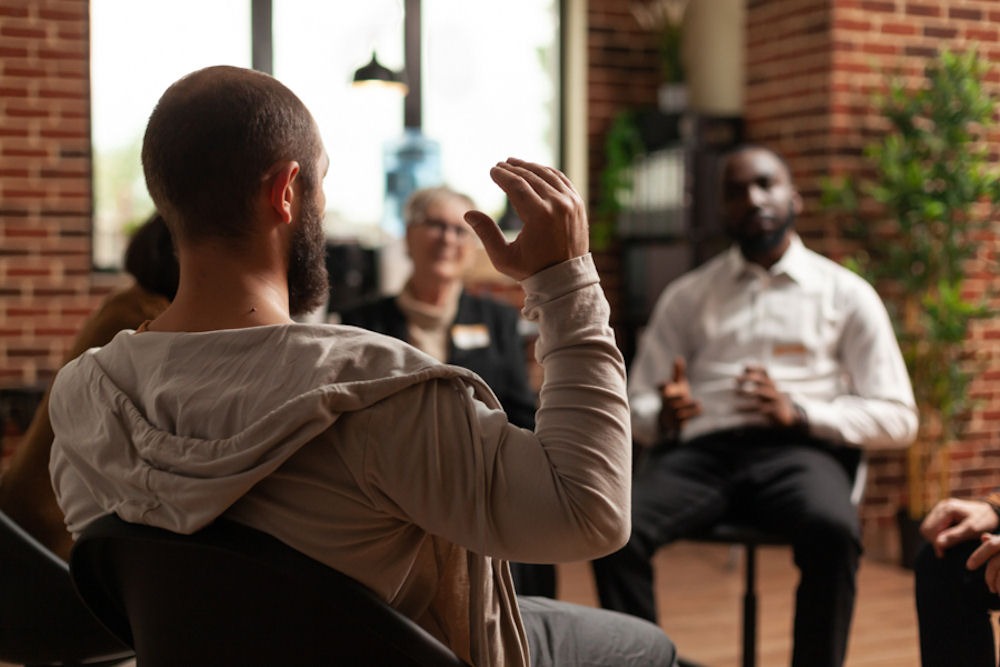
You don’t have to face mental health challenges alone. A strong, supportive community can be the foundation for lasting wellness. Crestview Recovery is here to help you build that foundation — one relationship at a time.
Contact us today to learn how our mental health programs can help you strengthen both your mental health and your sense of belonging.
































